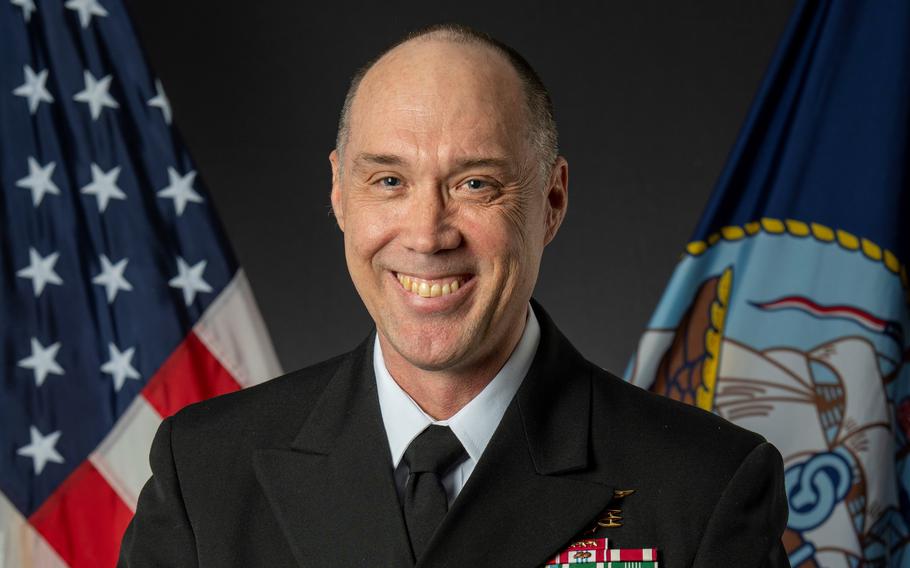
Rear Adm. Ronald Foy, shown in a 2021 command photo, replaced Rear Adm. Milton Sands as head of Special Operations Command Africa on July 21, 2023. Foy, a Navy SEAL, comes to the command after a stint as deputy director for global operations at the Joint Staff. (U.S. Navy)
STUTTGART, Germany — A Navy SEAL took command Friday of special operations missions in Africa, where countering terrorists in Somalia will be a major task for U.S. commandos involved in a yearslong effort to build up local forces.
Navy Rear Adm. Ronald Foy replaced Rear Adm. Milton Sands, who served as head of Special Operations Command Africa for the past two years.
U.S. Africa Command’s Gen. Michael Langley, speaking during a change of command ceremony at his Kelley Barracks headquarters in Stuttgart, said SOCAF serves as a first responder in defending U.S. interests on the continent.
Foy arrives after a stint as deputy director for global operations at the Joint Staff. He enlisted in the Navy in 1985 and received his commission in 1992. His career has revolved around SEAL missions, with commands at various levels.
Foy’s top priority will be to give African partners the tools to “rid themselves of terrorism,” and the command also needs to focus on ensuring the U.S. maintains access on the continent to carry out crisis response missions, Langley said.
During Sands’ tenure at SOCAF, he “spoke truth to power” and often played devil’s advocate when AFRICOM was dealing with tough decisions, Langley said.
“I want to thank you for that. It made us a better organization,” he told Sands.
In Africa, counterterrorism has been a primary focus, particularly in Somalia, where several hundred U.S. special operations troops are training and advising local forces in their battle against the al-Shabab militant group.
However, China’s growing military presence and Russian efforts to gain influence in Africa are other factors.
In particular, the Russian private military contractor Wagner, which had been fighting in Ukraine but recently relocated to Belarus after a failed mutiny in June, is a concern for Washington.
The group’s footprint has expanded in trouble spots such as Mali and Libya. Earlier this week, Wagner leader Yevgeny Prigozhin said in a speech his group’s fighters are done with the war in Ukraine and are shifting attention to Africa.
Langley said the U.S. can serve as a “partner of choice” in Africa by distinguishing itself from how the Kremlin and entities like Wagner do business.
“Our people and allies and actors’ competitive advantage is a result of the trust we engender,” he said.